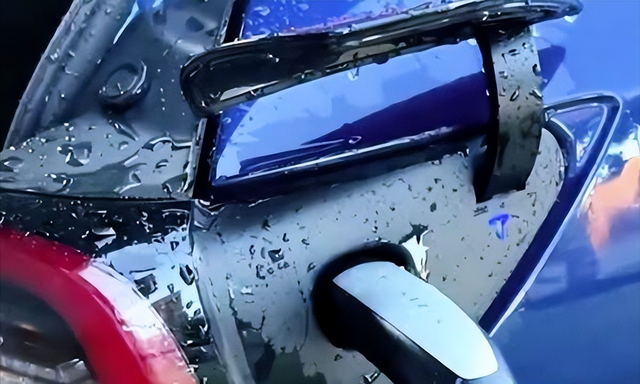Can you charge ev in rain?? | iFlowPower
It’s a question a lot of first-time electric car drivers ask themselves: ‘Can I charge my EV in the rain?’
One of the benefits of electric cars is that they can be charged at home, meaning you don't have to rely on petrol stations. But Can you charge an EV in the rain?
The simple answer is yes, you can charge an electric car in the rain. In fact, charging an electric car in the rain is no different to charging it in any other weather condition, as the charging systems on EVs are designed to withstand the elements and remove any potential risks associated with charging in the rain.
This means overnight charging is convenient, as you don't have to worry about the weather turning. Just make sure your home charger is properly installed and that your car is plugged in correctly, and you'll be good to go - rain or shine.
What happens if water gets inside an electric car charger?
It's very unlikely to happen, but if water gets into the charger to a point where it becomes dangerous, a charging connection won't happen. This means there won't be a current flow, so there's no risk of a shock or electrocution.
These safety precautions are put in place to keep you as safe as possible, and it means that your cables will be resistant to rain and water intrusion. Some of the safety precautions built into the charging plug to prevent water ingress include:
The pins and prongs in the charger are designed to make the primary "charging pin" the last to make contact when plugged into the connector. It's also the first contact that will break when it's unplugged. This means that any defects with the connector would be identified before the primary pin is even fully plugged in.
The connectors are very bulky with copious amounts of plastic around them, even though the pins themselves are very small. This protects against water intrusion and prevents any damage from occurring. Each connector prong or pin has a plastic covering on the charging port and the vehicle's matching port.
These safety functions all work to ensure that, even if water does get into one of the pins, the moisture won't touch any other pins, preventing any short circuits.
Should I do anything differently when charging an EV in the rain?
If your charging point, and all the cabling, is manufactured to the proper safety standards, you shouldn’t need to do anything different. The process for charging an electric car is the same in all weather conditions.
Here are four tips to make sure charging is always safe:
Use dedicated charging points – Whether you're charging at home or at a public charger, professionally installed EV charging ports are the safest way to charge your electric car.
Buy approved charging cables – Most EVs come with charging cables but if you need to buy some, make sure they’re recommended by the manufacturer.
Never use multi-plug extension cords - Always use the correct, manufacturer-approved cables and cords. Domestic cables should never be used.
Check your charging point – Whenever you use a charger, it’s a good idea to check it’s in good condition.













































































































